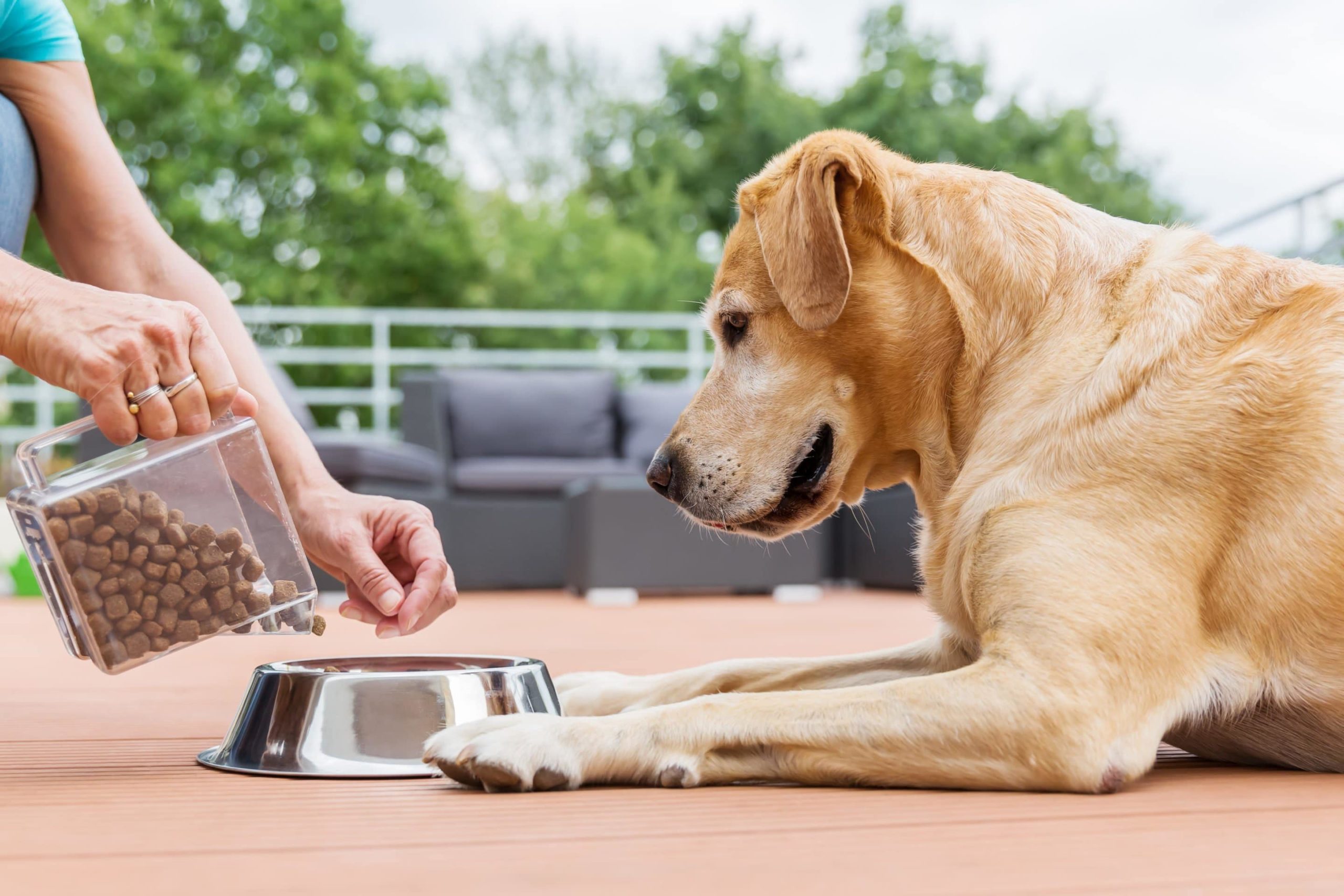Feeding your dog after sterilization
Sterilization of dogs has many benefits, especially for their health: reduction of the risk of mammary tumors for females (if it is done before the third heat), prevention of prostatic problems in males, etc... A disadvantage of sterilization is that sterilized dogs are prone to overweight, but it is quite possible to maintain their weight with an appropriate diet and physical activity.
Why are sterilized dogs prone to overweight?
Sterilization of male and female dogs is beneficial for several reasons: it prevents unwanted litters and certain undesirable behaviors, it prevents health problems, etc... We invite you to read our pages on sterilization in bitches and on castration in dogs for more details.
However, sterilized dogs are prone to weight gain. Indeed, the caloric needs of dogs decrease by 20% while their appetite increases... It is very important to watch their weight to avoid health problems related to obesity.
However, this should not be seen as an obstacle to the realization of this intervention because it is perfectly possible to maintain their weight. To do this, it is necessary to adapt their diet and switch to a food specially designed for sterilized dogs.
When an animal is overweight before the sterilization, it is recommended to see with his veterinarian if it is possible to wait some time before the intervention. It will be easier to make the animal lose weight before it is sterilized.

Which food to choose after sterilization?
As mentioned above, it is recommended to give a food for sterilized dogs. Indeed, if we stay on the same food as before sterilization, it is necessary to reduce the quantities of kibbles distributed daily to the animal, its needs in energy being lower. He will receive a smaller quantity of kibble than before and therefore a smaller quantity of proteins, vitamins, etc... These needs will not necessarily be covered.
Foods for sterilized dogs have a reduced energy density compared to kibbles for non-sterilized dogs. They are formulated to cover all the needs of dogs after sterilization. In particular, it is important to cover the animal's protein needs. The protein-to-calorie ratio (PCR) of sterilized dog food should be higher than that of whole dog food.
Ideally, a high-protein, low-carbohydrate spay/neuter food should be chosen to help maintain muscle mass and help control weight. The digestion of proteins consumes energy and proteins improve the animal's satiety.
Some foods are supplemented with substances that help control weight, such as L-carnitine.
It is advisable to respect a dietary transition of a fortnight when changing food to avoid digestive problems.
Good to know: there are foods specially designed for sterilized puppies that are still growing. It is advisable to switch to an adult sterilized dog food only when the animal has finished growing.
How do I monitor my dog's weight after surgery?
The animal's veterinarian is a great help in monitoring the weight after sterilization. He can advise the most suitable food and calculate the ration necessary for the animal to maintain its ideal weight. Indeed, the rationing tables on the kibble packets are indicative, it is always good to have a personalized ration calculation.
Regular weight controls are then recommended (every month at first and then every three months) in order to be able to quickly adjust the animal's diet if necessary.
Your veterinarian can also teach you how to evaluate your dog's overweight condition by feeling his ribs and looking at his abdomen (whether or not there is a hollow in the flank). You will also find all our advice on how to evaluate your dog's weight in our file "Is your dog's weight correct?
It is very important to take your dog out regularly, do sports, play with him, etc... to help him stay in shape and maintain his ideal weight. Don't hesitate to equip your dog with an activity sensor to follow his physical expenditures! In general, activity sensors are a great source of information for you and your veterinarian on your dog's behavior and health.


